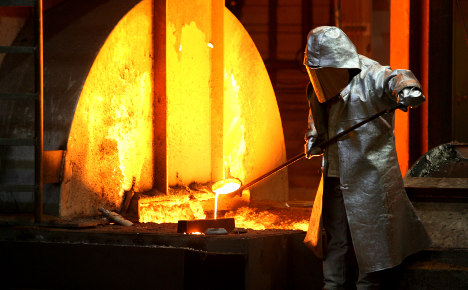The survey of 25,000 companies, conducted by the German Chambers of Industry and Commerce (DIHK), found that in the 10 most important sectors, firms are clearly confident that 2010 will be better for business than last year.
The report found that confidence in an upswing in exports was largely responsible for the buoyant mood, according to daily Bild. The DIHK was set to release the full survey Wednesday morning.
But firms also warned of dangers threatening the rebound: rising energy prices, high wage bills and a lingering difficulty with obtaining credit.
Especially positive were the chemical industry, which employs 331,000 workers and the electrical industry, which employs 800,000, with 45 percent of companies improving their prognosis in the new year.
Research and develop businesses and the IT sector were also more optimistic. In the latter, some 38 percent of firms predicted an upswing in business compared with just 14 percent who believed it would go backwards.
One cloud on the horizon was a lack of qualified engineers.
The least confident of the 10 major sectors were the mechanical engineering sector – a key industry that includes machinery manufacturers and employs about 1 million workers – and the health and social services sector, which employs 3.3 million.



 Please whitelist us to continue reading.
Please whitelist us to continue reading.
Member comments